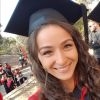2018
Newsletter June 14th 2018
Click here to download a copy of our latest newsletter. This week's edition contains: Handy gluten challenge resource Book giveaway Review: Dietary Analysis Part 1 & 2 New to our recordings library Upcoming webinars and case studies Interesting Items: Abstract: Association of Body Mass Index With Lifetime Risk of Cardiovascular Disease and…
2018
Menopause Presented by Dr Fiona Jane MBBS
Many women experience symptoms of menopause, such as hot flushes, insomnia and anxiety, which cause them to seek medical advice. When they do, it is an opportune time to recommend lifestyle changes that not only ease the symptoms of menopause, but help reduce the risk of cardiovascular disease, osteoporosis and…
2018
Dietary Analysis 2 Part Series. Dr Dianne Volker, PhD, APD
In Part 1 an introduction to Dietary analysis Dianne explained how using dietary analysis in our practice sets us apart as nutrition experts. She explained how to set up a diet analysis, understand the results and use them as an education tool with clients. In her part 2 webinar on…
2018
Newsletter May 31st 2018
Click here to download a copy of our latest newsletter. This week's edition contains: A Snapshot on Zinc Review: Cholesterol Lowering Medication Upcoming webinars and case studies Book giveaway Interesting Items: Submissions into the Obesity epidemic in Australia inquiry Malnutrition is independently associated with skin tears in hospital inpatient setting—Findings of a…
2018
Are plant based diets an antidote to obesity?
 Paula Goodyer
Paula Goodyer
Despite all the hype around ketogenic diets and weight loss, new research presented at the recent European Congress on Obesity suggests that it’s diets high in plant foods and low in animal-based foods that may protect against obesity in the long term, especially in middle aged and older people. Although…
2018
The gluten challenge
 Isabella Fedele
Isabella Fedele
It is quite common in clinical practice to see clients who, for various reasons, have been eating a gluten-free diet without ever being investigated for coeliac disease. Coeliac disease investigations (serology and/or small bowel biopsy) are only accurate if a gluten-containing diet has been eaten for six weeks prior to…
2018
Snapshot on Zinc
 Isabella Fedele
Isabella Fedele
Isabelle Fedele, APD has put together a great practical summary about the essential mineral zinc. You can use as a reminder of the importance of magnesium or as a handout with your clients. Download here.
2018
Newsletter May 17th 2018
Click here to download a copy of our latest newsletter. This week's edition contains: Review: Part 2: Fundamentals of nutrition and cancer: how dietitians can help cancer patients in hospital Top 10 Tips for Graduates Upcoming webinars and case studies New to the recording library Book giveaway Interesting Items: 'World-first' call for…
2018
Cholesterol Lowering Medication – Melanie Frodsham, BPharm (Hons), MPS AACPA
Cardiovascular disease is the number one cause of death for people over 45 in Australia, with elevated cholesterol levels a significant risk factor for CVD. Whilst lipid lowering medications will never negate the need for diet and lifestyle changes, they are widely used in Australia. Melanie Frodsham has a special…
2018
Top 10 Tips for Graduate Dietitians
 Evangeline Mouratidis, Graduate Dietitian
Evangeline Mouratidis, Graduate Dietitian
Register with the DAA and start your APD program. Find a mentor sooner rather than later. Mentors can open many doors and work opportunities. Don’t feel compelled to have a job before securing a mentor. Apply for your Medicare provider number ASAP if you’re going into private practice! It can…